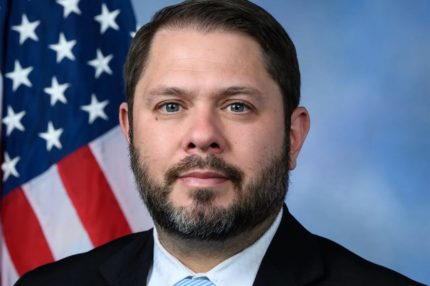Democratic candidate Ruben Gallego has emerged victorious in Arizona’s high-stakes Senate race, defeating Republican contender Kari Lake in a tight contest. CBS News, projected Ruben Gallego’s win with a slim two-point lead. Ruben Gallego, a former Iraq War veteran and current U.S. House Representative, made history as the first Latino to represent Arizona in the U.S. Senate, succeeding independent Senator Kyrsten Sinema. His victory marks a critical win for Democrats, especially in a swing state that had recently leaned away from the party in presidential elections.
The Arizona Senate race was watched closely due to the contrasting political figures involved. Kari Lake, a former news anchor and staunch Trump supporter, previously lost the Arizona governor’s race and had since been vocal about her belief in Trump’s unfounded claims regarding the 2020 election. This election loss reaffirms a significant setback for Lake and Trump’s influence in Arizona’s political landscape.
Historical Shift in Arizona’s Senate Representation
Ruben Gallego’s victory is not only significant for Democrats but also reshapes Arizona’s political trajectory. Arizona, traditionally a conservative state, had not elected a Democratic senator in three decades until 2018, when Kyrsten Sinema won her seat, followed by Democrat Mark Kelly, who succeeded the late Senator John McCain. This shift reflects a new political era in Arizona, one that has slowly leaned Democratic in recent years despite its traditional Republican roots.
Gallego’s win comes as Democrats face challenges in retaining influence in other battleground states. The Senate race thus represents both a personal victory for Ruben Gallego and a strategic gain for his party, as Democrats look to balance power in a highly polarized political environment.
Ruben Gallego’s Campaign: A Blend of Military Experience and Moderate Policies
Ruben Gallego’s 2024 Senate campaign was marked by his military background and more moderate approach compared to his earlier progressive stances. Emphasizing his Iraq War service, Ruben Gallego connected with Arizona’s veteran community and positioned himself as a practical leader focused on economic relief. His campaign promises included addressing inflation and repairing the state’s immigration system, a pressing issue in the border state.
Unlike previous campaigns, Ruben Gallego’s strategy was less about ideological statements and more about tangible policies that could appeal to moderate and undecided voters. This approach enabled him to attract support from various demographics, aligning with Arizona’s increasingly diverse electorate and ultimately leading to his success in the close race.
Kari Lake’s Campaign and the Republican Response
Kari Lake’s campaign leaned heavily on her association with Donald Trump, often incorporating election integrity issues and Trump-endorsed rhetoric. She attempted to undermine Gallego by referencing personal attacks on his family background, particularly focusing on his estranged father’s criminal record. However, despite her aggressive strategy, Lake struggled to close the polling gap leading up to election day, as voters appeared more concerned with policy issues like inflation and immigration.
The Senate loss adds to the Republican Party’s challenges as they aim to regain control in Washington. Although the GOP has secured a narrow majority in the Senate, they still face an uncertain path in the House, with several races too close to call. Lake’s loss is a reminder of the risks associated with Trump-aligned rhetoric in swing states like Arizona, as the GOP recalibrates its strategy to win over moderate voters in upcoming elections.
Meet Ruben Gallego: Champion for Arizona Families and Veterans
Ruben Gallego, the son of immigrants from Colombia and Mexico, grew up in humble beginnings that helped shape his determination and sense of service. Raised by a single mother on a secretary’s salary, Gallego and his three sisters faced significant financial challenges, often relying on his mother’s resourcefulness to get by. Their living space was modest; he slept on the family’s living room floor and only had his own bed when he went away to college. His early life taught him resilience, a value that has guided him throughout his journey from a struggling student to a prominent voice for Arizona families in the U.S. Congress.














